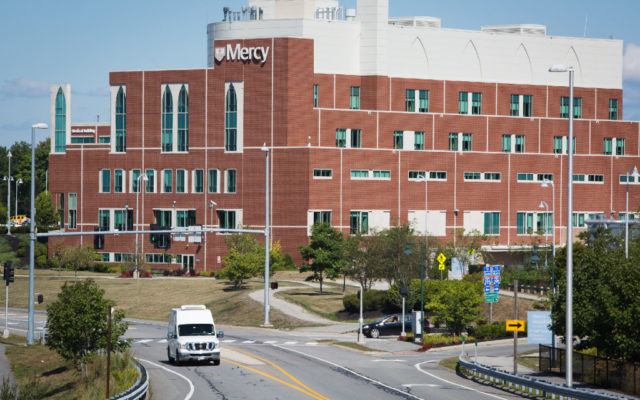
Maine hospitals start to expand COVID-19 units, delay procedures with spike in virus patients
By Charles Eichacker, Bangor Daily News Staff
Some Maine hospitals have seen such a large new wave of coronavirus patients this fall that they’re starting to delay some elective surgeries and expanding COVID-19 units to handle the growing volume.
The number of Mainers hospitalized with the virus reached a new high of 171 on Tuesday, with 48 in critical care and 19 hooked up to ventilators, according to the Maine Center for Disease Control and Prevention. That’s a four-fold increase from just one month earlier, and more than double the 60 hospitalizations at the peak of last spring’s surge.
Now, the hardest-hit hospitals along the Interstate 95 corridor are implementing emergency plans they first created last spring, then updated throughout the summer and early fall in anticipation of the new spike.
Starting this week, the state’s largest hospital, Maine Medical Center in Portland, began delaying some elective services to help free up hospital beds during the surge, according to a spokesperson for its parent group MaineHealth, John Porter.
Last spring, the nation’s hospitals put off most of their elective services to free up resources to handle the pandemic, but this time, the Portland hospital is rescheduling them on a case-by-case basis, Porter said. He said that “just a small percentage” of procedures have been put off so far and that the hospital is still offering all “same-day” surgeries as well as those that are “time sensitive” and “urgent” for inpatients.
Maine Medical Center, the largest hospital in the state, was hit the hardest of all Maine hospitals last week, with an average of 25 admitted coronavirus patients per day between Nov. 27 and Dec. 3. In third place for the state was its Biddeford affiliate, Southern Maine Health Care, which had an average of 20 inpatients per day.
Northern Light Eastern Maine Medical in Bangor had the state’s second highest volume of coronavirus patients during the same week, averaging 24 per day, but the number has fallen since peaking at 29 on Nov. 28. It stood at 21 as of Tuesday.
Among the other hard-hit facilities last week were MaineGeneral Medical Center in Augusta and Central Maine Medical Center in Lewiston, which averaged 17 and 12 patients per day, respectively, according to numbers provided by each health care organization.
The parent group of EMMC, Northern Light Health, has not yet needed to delay any elective services at its 10 hospitals to handle the fall surge of coronavirus infections, according to Dr. James Jarvis, who is helping to lead the organization’s pandemic response.
But it did have to temporarily implement another backup measure when cases spiked in the days before Thanksgiving, by temporarily expanding the isolated area of the hospital reserved for patients infected with the virus, according to Jarvis. It has since been able to return that area to a smaller size as cases dipped over the last week.
In general, the organization is keeping a close eye on the number of COVID-19 patients it is treating and has additional plans if cases keep spiking, including adding beds, moving around providers and delaying elective procedures. The state has also made a plan to open auxiliary hospitals in Portland and Bangor if necessary.
“Right now, capacity wise we are able to manage critical care patients and we are able to operate normally,” Jarvis said.
Health care organizations have been more reluctant to delay elective services this fall since they account for a large portion of their revenue and there are medical risks associated with delaying some of them. Northern Light lost more than $100 million in patient revenue after delaying them last spring.
One of Jarvis’ top concerns, he said, is that a critical mass of workers may need to leave work because they are sick or quarantining after exposure to the infection, at a time when the national supply of traveling nurses and doctors has already been strained by surges in other states.
Given that danger, Jarvis reiterated the public health advice that people should wear face masks, social distance and avoid gathering with people from outside their households during this new surge, both to keep the overall number of infections down and protect health care workers.
Before Thanksgiving, Northern Light announced that one of its workers had died after becoming infected with the coronavirus out in the community.